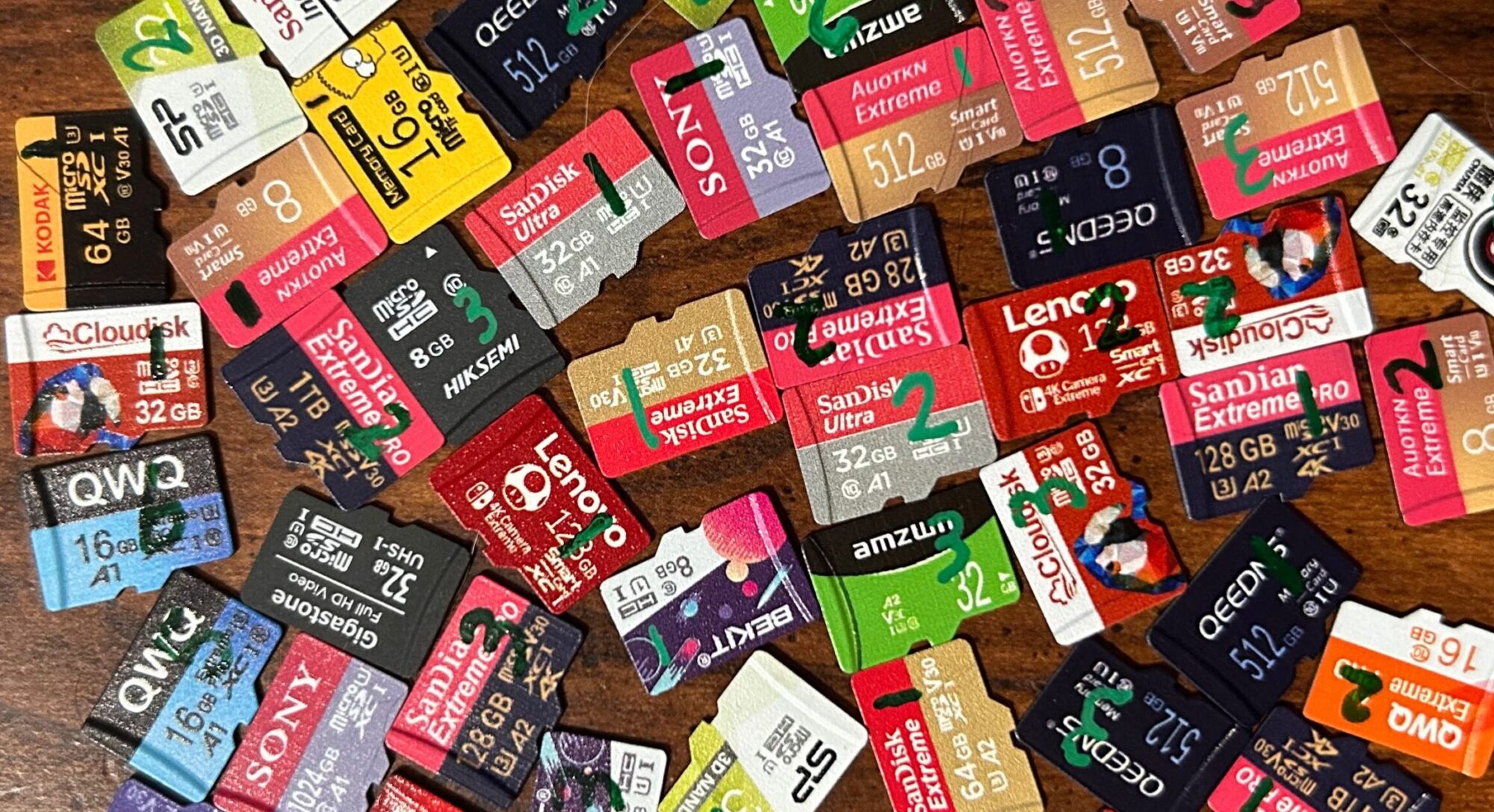Amazon has been slapping their brand name on just about everything with their Amazon Basics brand — and microSD cards have been no exception. I don’t think I’ve ever bought any electronics in the Amazon Basics brand — so this was a first for me.
Figuring out who made these cards was a little bit of a puzzle. Amazon doesn’t have their own silicon foundries (yet), so who made this card? The sources that I normally go to don’t have anything on manufacturer ID 0xad — however, I have seen this manufacturer ID (along with OEM ID 0x4c53) a few times now: with the Chuxia 32GB, the OV 32GB, and — most importantly — the Lexar Blue 633x 32GB. Why is this important? The Lexar brand was purchased by Longsys in 2017. Additionally, the OEM ID — 0x4c53 — when translated to ASCII becomes LS, which I believe is an abbreviation for Longsys. So I think I’m just going to call it: I think manufacturer ID 0xad belongs to Longsys, and that these cards were manufactured for Amazon by Longsys. (Update: Raspberry Pi makes their own line of microSD cards which also use manufacturer ID 0xad and OEM ID 0x4c53. They also have a post announcing those cards which specifically mentions Longsys — so that further reinforces my theory that this manufacturer ID and OEM ID belong to Longsys.)
Performance on these cards was surprisingly decent: all scores were above average, and all individual scores fell somewhere between the 58th and 87th percentiles (as of the time of this writing). These cards carry the Class 10, U3, V30, and A2 marks — and performance was good enough for all of them except for the A2 mark. However, I’ll throw in my standard disclaimer here: my performance tests were not performed as prescribed in the SD standard; it’s very possible that they would have done better had they been tested under proper conditions.
Endurance tests for all four cards are still ongoing:
- Sample #1 has survived 11,604 read/write cycles so far and has not yet experienced any errors.
- Sample #2’s first error was a four-sector wide address decoding error during round 956. It has survived 6,542 read/write cycles in total so far.
- Sample #3’s first error was a four-sector wide address decoding error during round 1,815. It has survived 6,563 read/write cycles in total so far.
- Sample #4 has survived 6,648 read/write cycles so far and has not yet experienced any errors.
Overall? This card actually surprised me — I went into this expecting it to be a crap card, but that turned out not to be the case. Performance was decent, endurance tests are progressing well, and on top of that, price per gigabyte was below average. Now…were there cards that did better and for cheaper? Yes — for example, the PNY Pro Elite Prime 64GB vastly outperformed this card and came in at $0.02/GB cheaper. But…so far, this seems to be a decent middle-of-the-road card.
June 21, 2025 (current number of read/write cycles is updated automatically every hour)

